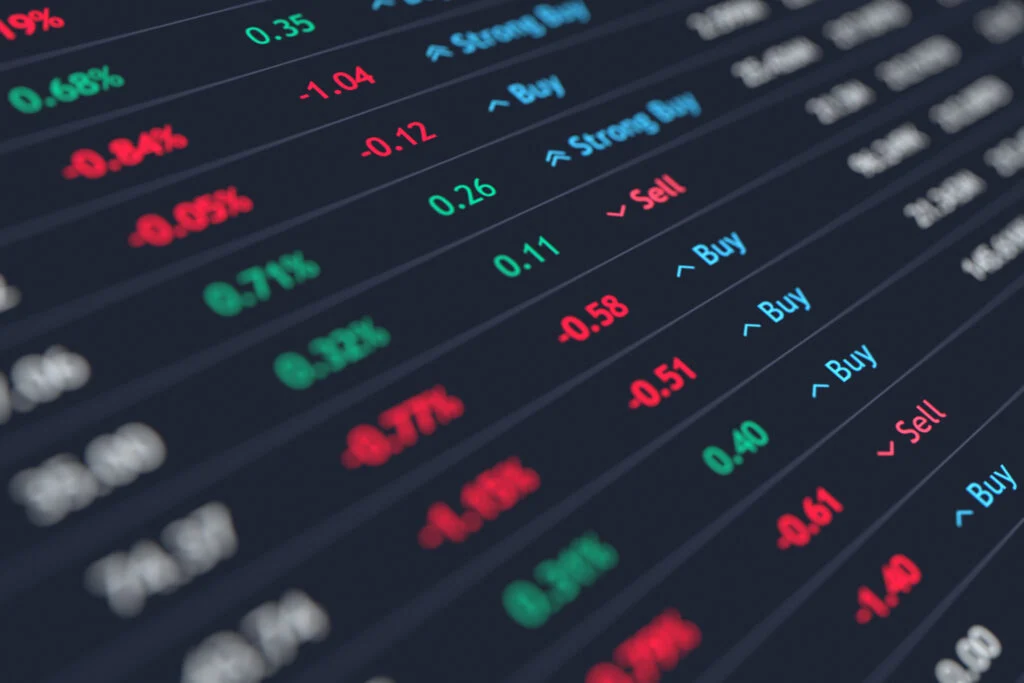
In recent days, the Brazilian stock market has experienced a remarkable recovery, reflecting growing investor optimism driven by positive corporate earnings reports and favorable economic data. The main index of São Paulo Stock Exchange (B3), the Ibovespa, has been consistently climbing, buoyed primarily by the strong performance of major companies and key economic indicators such as the IPCA (Extended Consumer Price Index), Brazil’s official inflation measure. Among the standout performers, the significant appreciation of stocks like Banco Itaú Unibanco (ITUB4), which rose about 5%, exemplifies the market’s confidence in the ongoing economic recovery and the financial sector’s health.
What Is Driving the Rise of the Ibovespa?
Several factors have contributed to this current wave of optimism in the Brazilian stock market. Firstly, the quarterly earnings reports released by publicly traded companies have, for the most part, been positive. These results reinforce the perception that Brazil’s economic recovery is underway. Companies in the financial, commodities, and consumer sectors have posted results exceeding expectations, further bolstering investor confidence.
For instance, leading banks such as Itaú Unibanco and Bradesco reported robust profits supported by improvements in credit management and increased profitability of their operations. These positive financial results help push up stock prices, reflecting market perceptions of stability and growth potential within the Brazilian financial sector—one of the pillars of the national economy.
The Role of IPCA in Market Expectations
Another significant factor influencing the Ibovespa is the release of the IPCA, which measures Brazil’s official inflation rate. The Central Bank uses the IPCA to guide its monetary policy decisions. When the IPCA indicates controlled or declining inflation, markets tend to react favorably, as economic outlooks become more predictable and the risk of aggressive interest rate hikes diminishes.
Recently, the IPCA has shown signs of deceleration, leading to expectations that the Central Bank might maintain or even reduce the Selic rate (Brazil’s benchmark interest rate) in upcoming meetings. Lower interest rates tend to stimulate consumption and investments, which in turn support stock market growth. The anticipation of a more accommodative monetary policy is one of the main reasons behind the recent positive sentiment in the equities market.
The Case of ITUB4: A 5% Appreciation That Catches Attention
One of the most notable stocks during this recovery is Itaú Unibanco (ITUB4), which surged approximately 5%. This substantial increase reflects investors’ confidence in the strength and resilience of Brazil’s largest private bank, especially after quarterly results exceeded analysts’ expectations.
Itaú reported a net profit of around R$9 billion in the last quarter—a growth compared to the same period last year. Furthermore, the bank has been expanding its credit portfolio, particularly in higher-margin segments such as vehicle financing and personal loans. Its strong financial performance, coupled with optimistic economic prospects, makes ITUB4 a preferred and perceived safe investment among market participants seeking both stability and profitability.
Expectations for the Coming Months
While the current trend remains positive, experts warn that the Brazilian stock market still faces challenges. Although inflation is decelerating, it remains above the Central Bank’s target, which could lead to a prolonged period of high interest rates. Elevated rates tend to dampen economic activity, and the potential for inflation to persist or reaccelerate remains a concern.
External factors also play a crucial role. Global economic conditions, geopolitical tensions, and fluctuations in commodity prices—Brazil’s key exports—can introduce volatility. Unexpected geopolitical developments or adverse global economic trends could impact investor sentiment and market performance.
Nonetheless, the outlook remains cautiously optimistic. The ongoing improvement in corporate earnings, combined with the expectation of a monetary policy aligned with inflation control, sustains investor confidence in the short term. Long-term investors continue to seek opportunities in resilient sectors such as banking, finance, and commodities, which have historically shown resilience during economic downturns.
How to Invest Safely in the Brazilian Stock Market
For investors eager to capitalize on this upward trend, it is essential to approach the market with careful analysis and a well-defined strategy. Diversification remains a fundamental principle—spreading investments across different sectors and companies helps mitigate risks. Monitoring corporate results and economic indicators such as inflation, interest rates, and GDP growth is also vital for making informed decisions.
Additionally, staying alert to decisions made by the Central Bank and international news that could influence market conditions is crucial. Utilizing professional analysis and market reports can provide valuable insights. For those with a long-term perspective, maintaining patience and a disciplined approach can help weather short-term volatility and benefit from sustained growth over time.
Combining knowledge, strategic planning, and a focus on fundamentals enables investors to navigate the Brazilian stock market more securely, especially during periods of economic recovery and market appreciation.
Conclusion
The current phase of the Ibovespa, characterized by significant gains driven by solid corporate earnings and positive economic data such as the IPCA, demonstrates the resilience and growth potential of the Brazilian economy. The notable appreciation of stocks like Itaú Unibanco underscores investor confidence in the banking sector’s stability and the overall health of the capital markets.
Although challenges persist—such as inflation levels and external uncertainties—the combination of favorable corporate results and a monetary policy aligned with inflation control creates a conducive environment for investment. Staying informed, diversifying portfolios, and closely monitoring economic indicators are essential steps for investors wishing to take advantage of this recovery.
In summary, the Brazilian stock market is showing promising signs of recovery and growth. With strategic planning and prudent analysis, investors can participate in this upward trajectory, benefiting from the ongoing economic resurgence of Brazil. As the market continues to evolve, those who remain attentive and well-prepared will be positioned to capitalize on opportunities that arise from the country’s economic comeback, ensuring their investments are aligned with the nation’s path towards sustained growth and stability.
